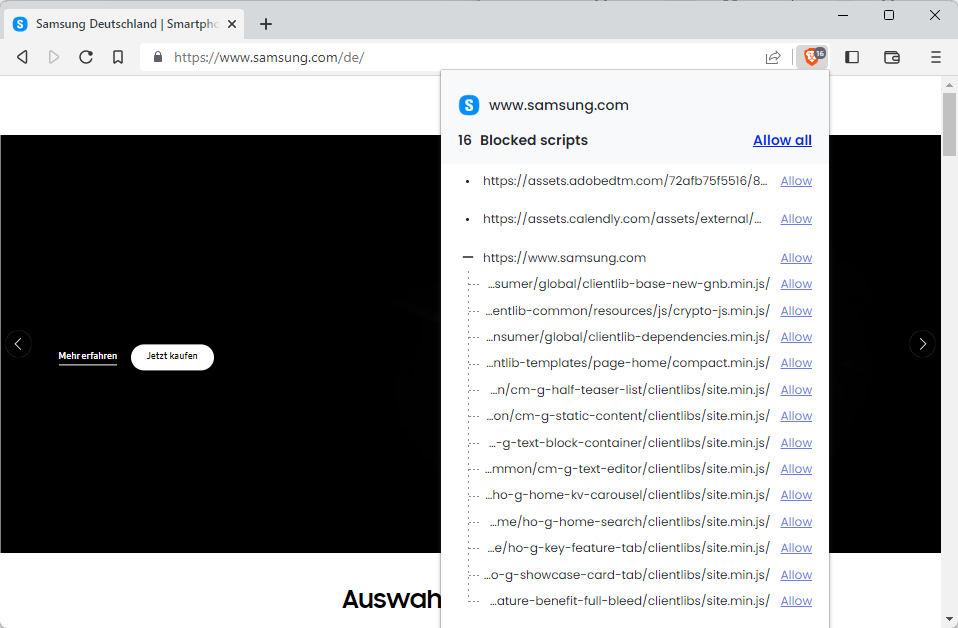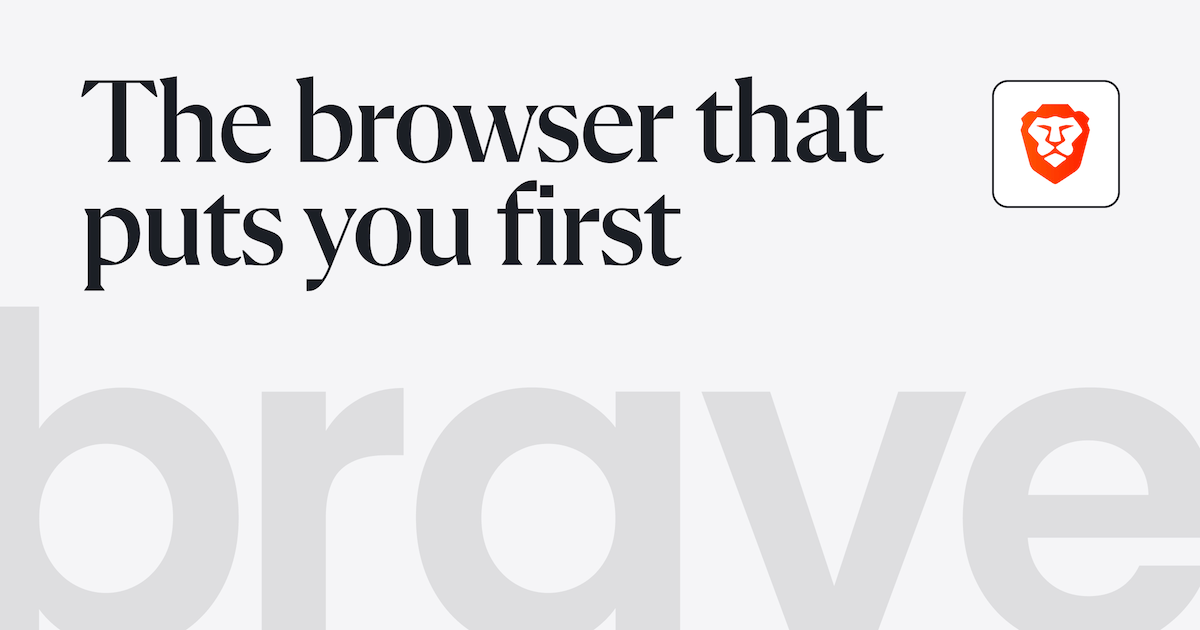Brave Software published a new version of its Brave web browser today. Brave 1.51 adds several privacy-focused features to the browser or improves existing ones.
The new version of Brave browser is available already. It should be updated automatically on most devices, but desktop users may load brave://settings/help or select Menu > Help > About Brave to run a manual check for updates. The page that opens displays the current version as well. A restart is required to complete the update.
The official release notes provide a good overview of the changes in the browser. While there are many changes related to Web3, and Brave's integrated crypto-functionality, there are also many improvements in other areas of the browser.
One of the main ones adds individual script allowing to the browser. Many Brave browser users may not know that Brave includes functionality to block scripts that websites want to run. The feature is disabled by default and may be turned on with a click on the Shield icon and toggling Block Scripts in the interface that opens.

Starting in Brave 1.51, the new version just released, Brave users may now allow some of these scripts. Blocked by default once enabled, some scripts may be required for site functionality, and users may now select to enable these instead of giving the site a carte blanche in this regard.
The functionality is not as sophisticated as that provided by NoScript Security Suite or uBlock Origin, but it gives advanced users more control over the script blocking and allowing functionality.
Another new feature gives users of the browser more control over Google Sign-In requests on third-party sites. We reviewed the feature back in March 2023 already and you may want to check out the article for additional details on the new functionality. In a nutshell, Brave users may now allow sign-in requests on a per-site basis instead of globally. It is a big gain for privacy, provided that the Brave user signs-in to third-party (non-Google) web services using a Google account.
Brave 1.51 comes with a few additional feature improvements. The browser's Speed Reader displays a time to read estimate now and has wider columns for improved readability, Linux users get media notifications for player controls, and captive portal detection has been enabled.
The browser's HTTPS by Default mode will fall back to HTTP now, if the upgrade from HTTP to HTTPS is causing issues, and the browser has been updated to the latest Chromium version next to that.
Closing Words
Brave Software continues to improve the web browser. The new feature to allow individual scripts is a welcome step for advanced users and the highlight of the release.




Recommended Comments
There are no comments to display.
Join the conversation
You can post now and register later. If you have an account, sign in now to post with your account.
Note: Your post will require moderator approval before it will be visible.